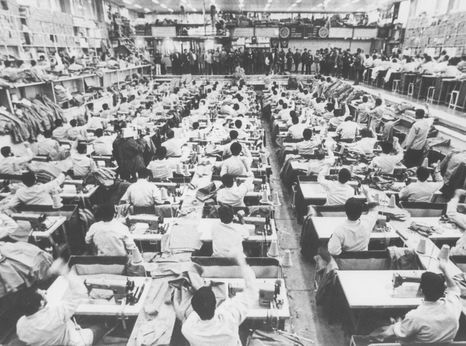Ill-treated prisoner risks total paralysis

Hossein Sepanta says that during his detention in 2000 by the Revolutionary Guards in Shiraz, his interrogator inflicted severe blows to his chest and back, damaging his spinal cord and leading to his syringomyelia. He claims that security forces agreed to release him due to the severity of his medical condition, on the condition that he does not file a complaint for the injuries he sustained as a result of torture. The reasons of his initial arrest are unclear to Amnesty International.
Many years later, on 24 June 2014, Hossein Sepanta was arrested for a second time in Shiraz, Fars province. This arrest was in connection with his alleged association with Anjoman-e Padeshahi-e Iran, a banned group which advocates the restoration of an Iranian monarchy and happened immediately after he returned to Iran to visit his ailing mother. Before then, he had lived in the USA for five years. Amnesty International understands that he entered Iran irregularly as he was afraid of facing arrest in connection with his political beliefs and associations. Hossein Sepanta says that following his arrest in 2014, his symptoms worsened as he was denied access to his medication for about 14 months. He was held in solitary confinement in a ministry of intelligence detention centre in Shiraz known as “Pelak-e 100” for five months without access to his family and lawyer, and then transferred to Adelabad prison. In 2015, following two separate trials before Branch 1 of the Revolutionary Court in Shiraz and Branch 120 of Criminal Court Two of Fars Province, he was convicted of several national security-related offences and sentenced to a combined total of 103 years and six months in prison. The sentence was reduced on appeal to 10 years. The national security-related offences of which he was convicted reportedly included “insulting the Supreme Leader”, “spreading propaganda against the system”, “gathering and colluding against national security” and “membership of a group formed with the purpose of disrupting national security”. Amnesty International has not been able to access court documents in relation to Hossein Sepanta’s case to independently confirm the details concerning his conviction and sentencing. He says that he did not have access to a lawyer during his trials and the judicial authorities have consistently denied him the right to obtain his court documents and review the information and evidence used against him.
Hossein Sepanta reportedly embarked on a prolonged hunger strike between May and July 2019 to protest against the bureaucratic hurdles that he said the prosecution authorities were imposing to block his conditional release. These hurdles have involved the authorities saying that his request for conditional release could not be processed because some court documents were missing from his file. Under Iranian law, those sentenced to 10 years or less are eligible for conditional release after having served one third of their sentence if they have “exhibited good behaviour”. The authorities refused to address his concerns, and in a media interview on 22 June 2019, the prosecutor general of Shiraz, Heidar Asiabia, denied that he was on hunger strike. However, according to information leaked from inside Adelabad prison, on 10 July 2019, the head of Adelabad prison ordered Hossein Sepanta to be transferred, in reprisal, to an isolated section of the prison called “Ebrat” (admonition), which is under the control of the ministry of intelligence and is used for punitive purposes. He was held there incommunicado for over two weeks and only transferred back to section 14 of Adelabad prison, where he is usually held, after he agreed to end his hunger strike. During this period, intelligence officials reportedly detained his mother for several days and conditioned her release on him ending his hunger strike.
The International Covenant on Economic, Social and Cultural Rights, to which Iran is a party, recognizes the right of every person to the highest attainable standard of health. The UN Standard Minimum Rules for the Treatment of Prisoners (Mandela Rules) state that prisons must provide adequate medical care to prisoners without discrimination and free of charge. The Mandela Rules provide that “Prisoners who require specialized treatment or surgery shall be transferred to specialized institutions or to civil hospitals” and clinical decisions should only be taken by health-care professionals and not be overruled or ignored by non-medical prison staff.
Under international law and standards, anyone charged with a criminal offence has the right to adequate time and facilities to prepare a defence. This includes the right to meet one’s lawyer in private from the moment of arrest and both during the pre-trial and trial phase, and prompt access to all evidentiary materials that the prosecution plans to present in court against the accused person. Torture and other ill-treatment are absolutely prohibited under international law. States must conduct independent investigations into all allegations of torture and other ill-treatment, bring those responsible to justice, and ensure that victims have access to effective reparation, including rehabilitation. Denying a prisoner access to healthcare and medications may amount to torture.